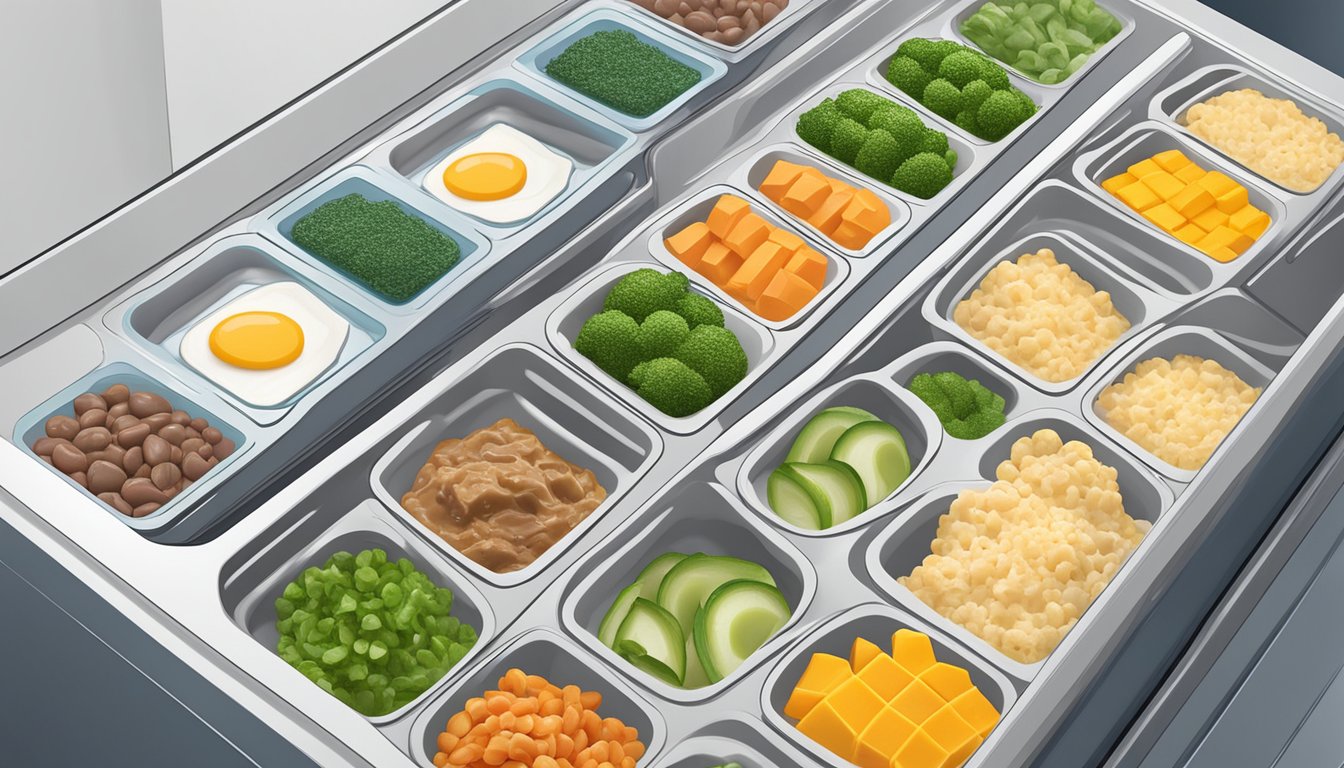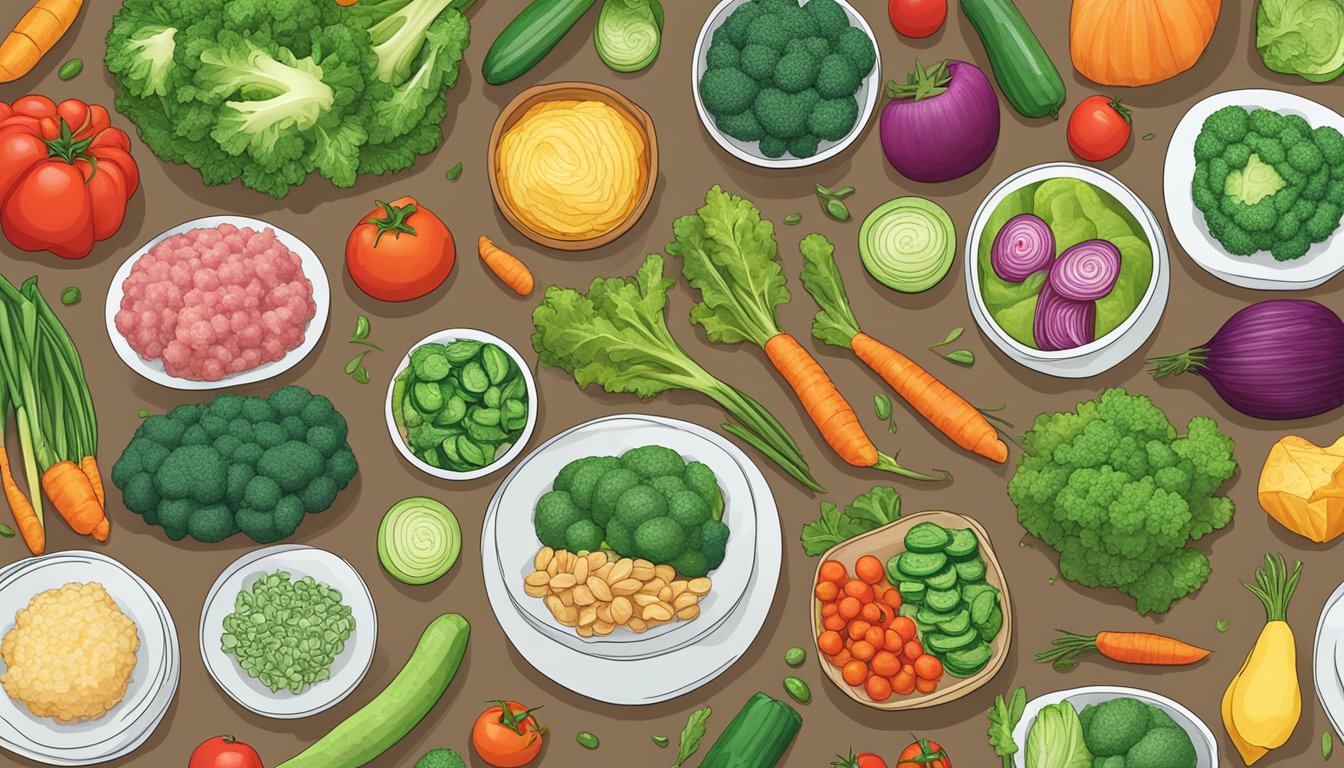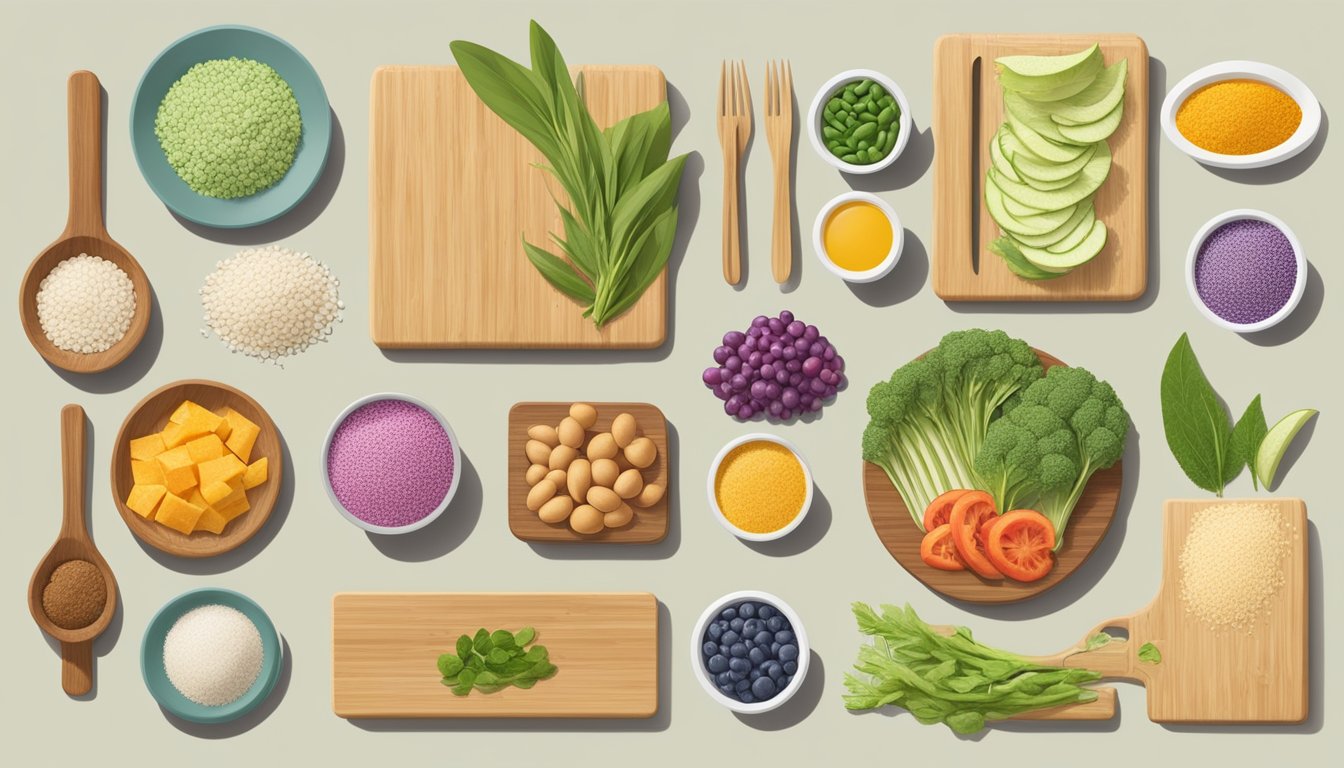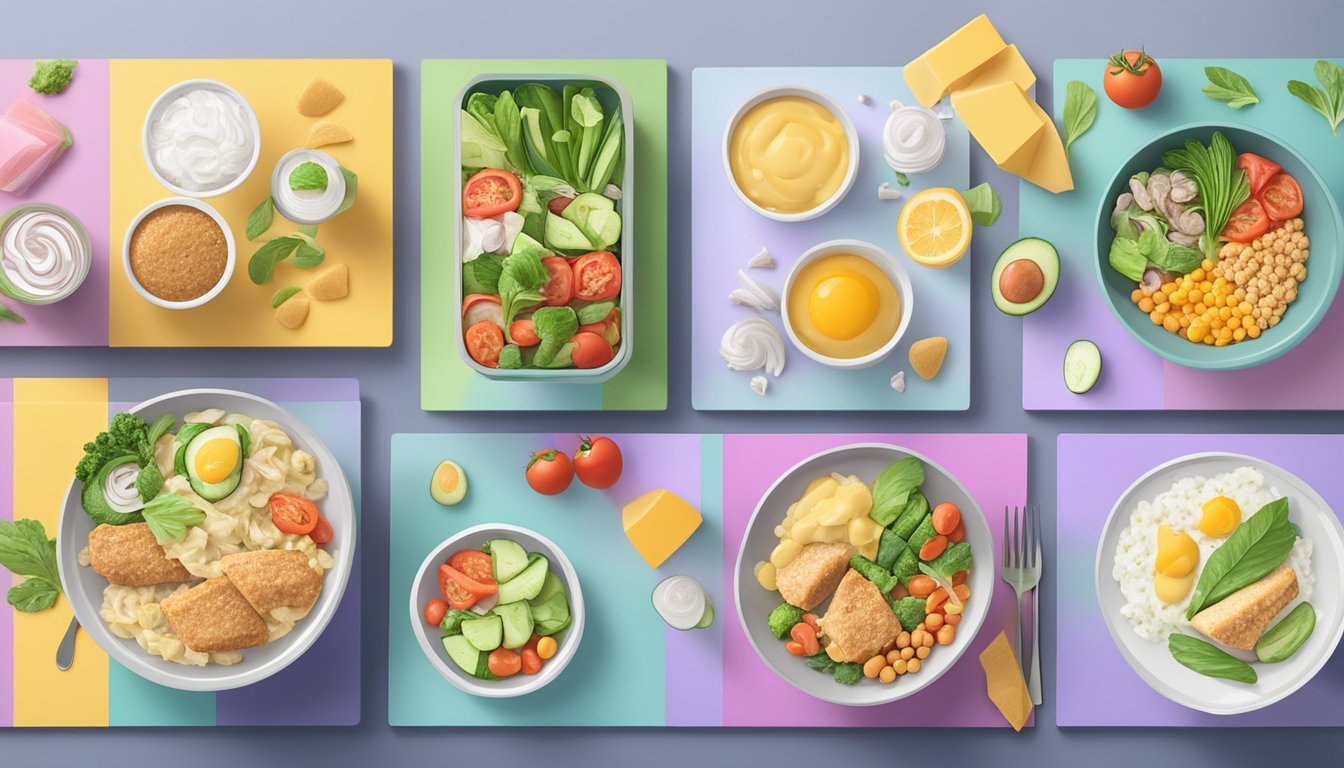The ketogenic diet has gained popularity for its potential health benefits and weight loss effects. For those following this low-carb, high-fat eating plan, finding convenient meal options can be challenging. Keto-friendly frozen meals offer a solution for busy individuals seeking to maintain their dietary goals without sacrificing time or taste.
Keto frozen meals typically contain less than 10 grams of net carbs per serving, making them suitable for those aiming to stay in ketosis. These pre-prepared options often feature protein-rich ingredients like meat, fish, or eggs, combined with low-carb vegetables and healthy fats. Many brands now offer a variety of keto-focused frozen meals, ranging from breakfast options to hearty dinners.
While convenience is a key factor, it’s important to carefully read nutrition labels and ingredient lists when selecting keto frozen meals. Some products may contain hidden carbs or additives that could interfere with ketosis. By choosing high-quality, nutrient-dense frozen meals, individuals can support their keto lifestyle while enjoying the ease of quick meal preparation.
Understanding the Ketogenic Diet
The ketogenic diet is a low-carb, high-fat eating plan designed to shift the body into a metabolic state called ketosis. This approach emphasizes consuming foods that are low in carbohydrates and rich in healthy fats.
Ketosis and Net Carbs
Ketosis occurs when the body burns fat for fuel instead of glucose. To achieve this state, individuals typically limit their daily net carb intake to 20-50 grams. Net carbs are calculated by subtracting fiber from total carbohydrates.
Tracking net carbs is crucial for maintaining ketosis. Many keto dieters use food journals or apps to monitor their intake. Some foods may appear high in carbs but have a low net carb count due to their fiber content.
Ketone testing strips or blood meters can help determine if one has entered ketosis. These tools measure ketone levels in urine or blood, providing insight into the body’s metabolic state.
Health Benefits of a Keto Lifestyle
Research suggests the ketogenic diet may offer several health benefits. Some studies indicate it can aid in weight loss and improve insulin sensitivity.
The diet has shown promise in managing certain neurological conditions, such as epilepsy. Some evidence suggests it may help reduce seizure frequency in some individuals.
Cardiovascular health might also improve on a keto diet. Some studies report increases in HDL (good) cholesterol and decreases in blood triglycerides.
Mental clarity and increased energy are often reported by keto dieters. This could be due to the brain’s adaptation to using ketones for fuel.
Common Keto-Friendly Foods
Keto-friendly foods are typically low in carbs and high in healthy fats. Meat, fish, and eggs are staples of the ketogenic diet, providing protein and essential nutrients.
Non-starchy vegetables like spinach, broccoli, and cauliflower are excellent choices. These foods are low in net carbs and rich in fiber and micronutrients.
Healthy fats from sources such as avocados, olive oil, and nuts are encouraged. These foods help meet the high-fat requirements of the diet.
Dairy products like cheese and full-fat yogurt can be included in moderation. It’s important to check labels for added sugars and carb content.
Berries are among the few fruits that can fit into a keto meal plan. They offer antioxidants and flavor while being relatively low in net carbs.
Keto Diet Frozen Meals Overview
Keto frozen meals offer a convenient way to stick to a low-carb, high-fat diet. They combine the benefits of meal prep with the ease of ready-to-eat options.
Advantages of Frozen Keto Meals
Frozen keto meals save time and effort for those following a ketogenic lifestyle. They eliminate the need for daily cooking and provide portion control. These meals are typically low in carbohydrates, usually containing 20-50 grams or less per serving.
Many brands offer a variety of options, from breakfast to dinner. This diversity helps prevent diet fatigue. Frozen keto meals are also travel-friendly, making it easier to stay on track while away from home.
Quality keto frozen meals often include high-fat ingredients like avocado, nuts, and cheese. They may also feature protein sources such as chicken, beef, or fish. Some options incorporate vegetable-based alternatives for added nutrients.
Meal Prep and Freezer Meals
Meal prepping keto-friendly freezer meals allows for greater customization. It enables individuals to control ingredients and portion sizes. This approach can be more cost-effective than purchasing pre-made frozen meals.
Common keto freezer meal ingredients include cauliflower rice, zucchini noodles, and low-carb vegetables. Meats, eggs, and high-fat dairy products are also frequently used. These components create balanced, keto-compliant meals.
Proper packaging and labeling are crucial for freezer meals. Using airtight containers or freezer bags helps prevent freezer burn. It’s advisable to consume these meals within 2-3 months for optimal quality and taste.
Proteins in Keto Frozen Meals

Keto frozen meals prioritize high-quality proteins while keeping carbs low. These convenient options offer a range of lean meats and protein sources to support ketosis and muscle maintenance.
Choosing High-Quality, Lean Proteins
Keto frozen meals often feature lean proteins like chicken breast, turkey, and fish. These options provide essential amino acids without excess fat.
Many brands use grass-fed beef or free-range poultry for improved nutrient profiles. Look for meals with at least 15-20 grams of protein per serving.
Turkey burgers are a popular choice, offering a lean protein source that fits keto macros. Some frozen meals incorporate eggs or egg whites as a versatile protein option.
Variety of Keto Proteins
Keto frozen meals showcase diverse protein sources to prevent menu fatigue. Beef, pork, and lamb appear in low-carb entrees like meatballs or steak dishes.
Seafood options such as salmon, cod, and shrimp provide omega-3 fatty acids along with protein. Plant-based proteins like tofu or tempeh cater to vegetarian keto dieters.
For breakfast, Jimmy Dean Simple Scrambles and RealGood sausage breakfast sandwiches offer protein-packed starts to the day. These quick options typically contain eggs, cheese, and sausage while keeping carbs minimal.
Sausage features in many keto frozen meals, adding flavor and fat alongside protein. Brands often use nitrate-free or uncured varieties to appeal to health-conscious consumers.
Keto-Friendly Vegetables and Alternatives

Vegetables play a crucial role in maintaining a balanced keto diet. Low-carb options provide essential nutrients while keeping carbohydrate intake in check.
Cauliflower-Based Dishes
Cauliflower is a versatile keto-friendly vegetable. It can be transformed into various dishes, including cauliflower rice and mashed cauliflower. These alternatives mimic high-carb foods while keeping net carbs low.
Frozen cauliflower rice is readily available in most grocery stores. It can be quickly prepared as a side dish or used as a base for keto-friendly stir-fries. Cauliflower-based pizza crusts and veggie cakes offer convenient options for those craving comfort foods.
Broccoli alfredo is another popular cauliflower-based dish. It combines the nutrient-dense properties of broccoli with a creamy, high-fat sauce, making it an ideal keto meal option.
Greens and Low-Carb Vegetables
Leafy greens like spinach are excellent choices for keto dieters. They’re low in carbs and high in nutrients. Frozen spinach can be easily added to smoothies, omelets, or sautéed as a side dish.
Other low-carb vegetables suitable for keto include:
- Zucchini
- Asparagus
- Brussels sprouts
- Kale
These can be found in frozen vegetable blends, such as Garden Lites Superfood Blends. These mixes offer convenience and variety while adhering to keto guidelines.
Vegetarian keto recipes often incorporate these low-carb vegetables as main ingredients. They provide bulk and nutrients without excessive carbohydrates, making them ideal for maintaining ketosis.
Top Keto Frozen Meal Brands and Products
Several brands offer keto-friendly frozen meals that cater to different tastes and nutritional needs. These products provide convenient options for breakfast, lunch, and dinner while adhering to low-carb, high-fat ketogenic principles.
Meals for Every Time of the Day
Jimmy Dean Simple Scrambles Bacon offers a quick and easy keto breakfast option. This protein-packed meal contains eggs, bacon, and cheese without added carbs. For lunch or dinner, Quest Thin Crust Pizza Supreme provides a low-carb alternative to traditional pizza. It features a protein-rich crust topped with meat and vegetables.
Atkins Chicken Margherita is another popular choice for keto dieters. This Italian-inspired dish combines grilled chicken with mozzarella cheese and a tomato-basil sauce. Performance Kitchen Carb-Wise offers several keto-friendly options, including their Chimichurri Chicken bowl.
Healthy Choice Power Bowls, such as the Chicken Marinara, provide balanced meals with vegetables and protein. These bowls often use cauliflower rice as a low-carb base.
Specialty Keto Brands
Some brands focus specifically on keto-friendly frozen meals. Primal Kitchen, known for its clean ingredients, offers a Chicken Pesto Bowl that fits well within keto macronutrient ratios. This meal features chicken, vegetables, and a flavorful pesto sauce.
Quest Nutrition, primarily known for protein bars, has expanded into frozen meals. Their products often incorporate high-protein, low-carb ingredients to support ketogenic diets.
Applegate Organics Turkey Burgers provide a simple, customizable option for keto dieters. These can be paired with low-carb vegetables or served on keto-friendly buns.
Trader Joe’s offers some keto-compatible options, like their Palak Paneer. This Indian-inspired dish combines spinach and cheese for a vegetarian-friendly keto meal.
Custom Keto Meal Creation Using Frozen Foods

Creating custom keto meals using frozen foods offers convenience and flexibility for those following a ketogenic diet. Frozen ingredients can be easily combined to assemble balanced, low-carb meals that fit within keto macronutrient ratios.
How to Assemble Balanced Keto Meals
Start with a protein source like grilled chicken or bacon as the foundation. Add non-starchy vegetables such as frozen broccoli or cauliflower mash to increase fiber and micronutrients. Include a healthy fat source like cheese or olive oil.
Aim for 70-75% of calories from fat, 20-25% from protein, and 5-10% from carbohydrates. Measure portions carefully to stay within keto macros.
Keep frozen keto-friendly sauces like salsa verde on hand to add flavor without excess carbs. Combine ingredients in various ways to create diverse meals throughout the week.
Frozen Food Combinations for Keto Dieters
Grilled chicken and broccoli alfredo: Mix frozen grilled chicken strips with steamed broccoli and a low-carb alfredo sauce.
Stuffed chicken cordon bleu: Prepare frozen stuffed chicken cordon bleu and pair with cauliflower mash for a satisfying keto meal.
Keto-friendly chicken enchiladas: Use low-carb tortillas, shredded chicken, cheese, and enchilada sauce. Serve with a side of cauliflower rice.
Bacon-wrapped protein: Wrap frozen chicken or fish in bacon slices before cooking for added fat and flavor.
These combinations provide variety while maintaining keto macronutrient ratios. Experiment with different frozen ingredients to find favorite meal combinations that fit keto guidelines.
Considerations for Sustainable and Allergen-Friendly Choices

Selecting keto frozen meals requires careful consideration of sustainability and potential allergens. These factors impact both personal health and environmental responsibility.
Eco-Friendly and Sustainable Keto Options
Sustainable salmon is an excellent choice for eco-conscious keto dieters. It provides healthy fats and protein while supporting responsible fishing practices.
Veggie burgers made from keto-friendly ingredients offer a plant-based alternative that reduces environmental impact. Look for options with low net carbs and minimal processing.
Consider making one or two keto meals per week vegetarian to further reduce your carbon footprint. This strategy balances environmental concerns with nutritional needs.
Opt for grass-fed beef and sustainably raised animal products when possible. These choices support ethical farming practices and often provide higher nutrient density.
Allergen Considerations in Keto Meal Selection
Gluten-free tortillas made from almond or coconut flour are essential for those with wheat sensitivities following a keto diet. These alternatives allow for variety without compromising health.
Grain-free meals are crucial for individuals with multiple food sensitivities. Look for frozen options that use vegetables or legumes as primary ingredients.
Read labels carefully to identify common allergens like dairy, eggs, and tree nuts. Many keto products contain these ingredients as substitutes for carbs.
The Think! Keto Chocolate Peanut Butter Protein Bar is a convenient option for those without nut allergies. It provides a quick, allergen-specific snack that fits keto macros.
Choose keto frozen meals with clear allergen labeling. This ensures safe consumption for those with food sensitivities or allergies.
Reading Nutritional Information and Labels
Carefully examining nutritional labels on frozen keto meals is crucial for maintaining ketosis and ensuring proper nutrition. Pay close attention to serving sizes, macronutrient ratios, and ingredient lists to make informed choices.
Identifying Hidden Carbs in Frozen Meals
When reading labels on frozen keto meals, focus on total carbohydrates and fiber content. Subtract fiber from total carbs to calculate net carbs. Look for hidden sugars in ingredient lists, such as maltodextrin or dextrose.
Watch out for sneaky carb sources like thickeners, stabilizers, and fillers. Common culprits include modified food starch, cornstarch, and tapioca starch.
Check serving sizes carefully. Some packages may contain multiple servings, potentially increasing your carb intake if consumed in full.
Be wary of “low-carb” or “keto-friendly” claims. Always verify the nutritional information yourself.
Ensuring Adequate Nutrition
While keeping carbs low is important, don’t neglect other essential nutrients. Look for meals with adequate protein content, typically 20-30 grams per serving.
Check for healthy fat sources like olive oil, avocado oil, or coconut oil. Avoid meals with excessive saturated fats or trans fats.
Examine micronutrient content. Opt for meals that provide a variety of vitamins and minerals, especially potassium, magnesium, and sodium.
Consider fiber content. Aim for meals with 5-10 grams of fiber per serving to support digestive health and satiety.
Scan ingredient lists for whole food components rather than highly processed additives. Prioritize meals with recognizable, natural ingredients.
